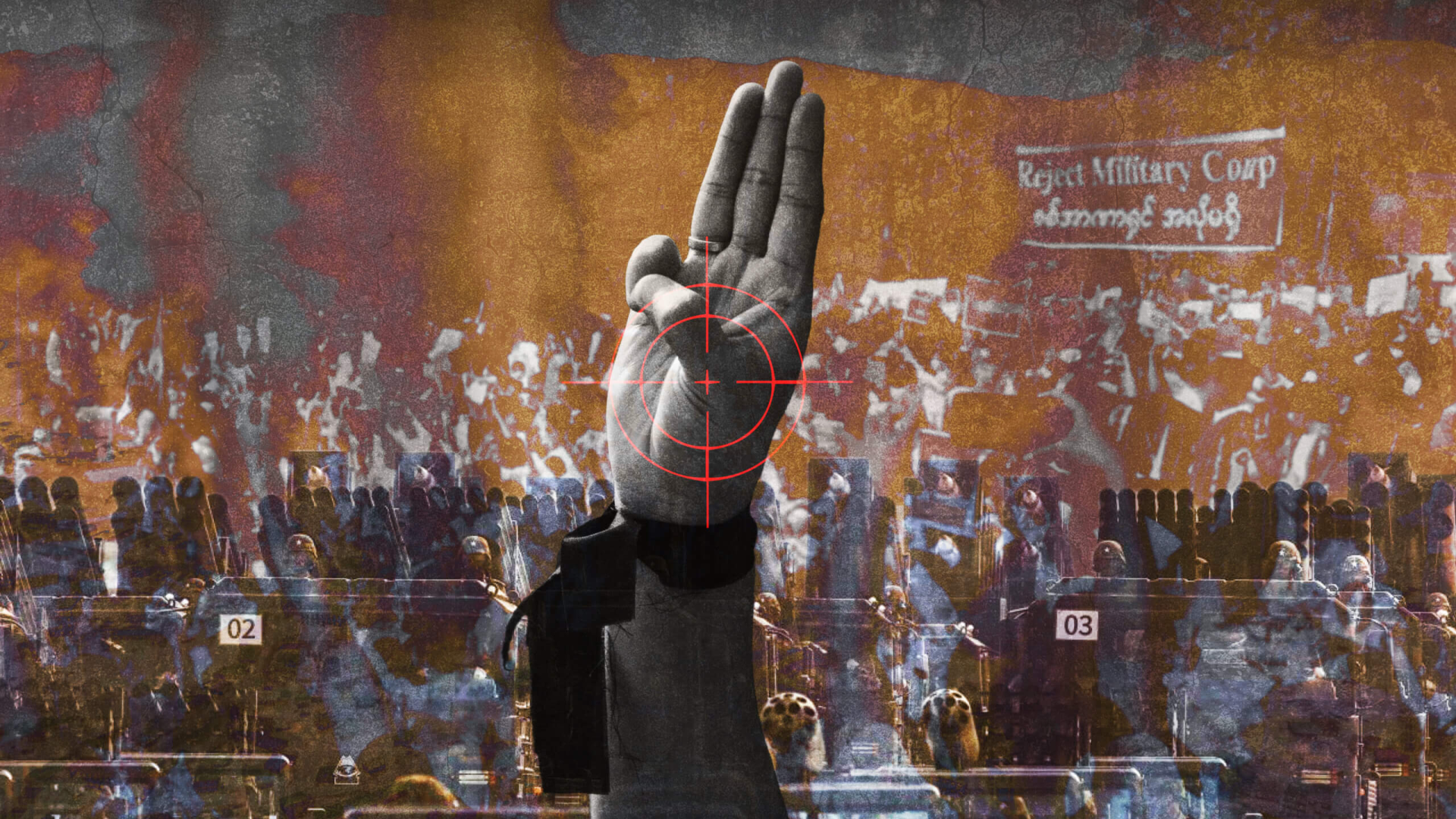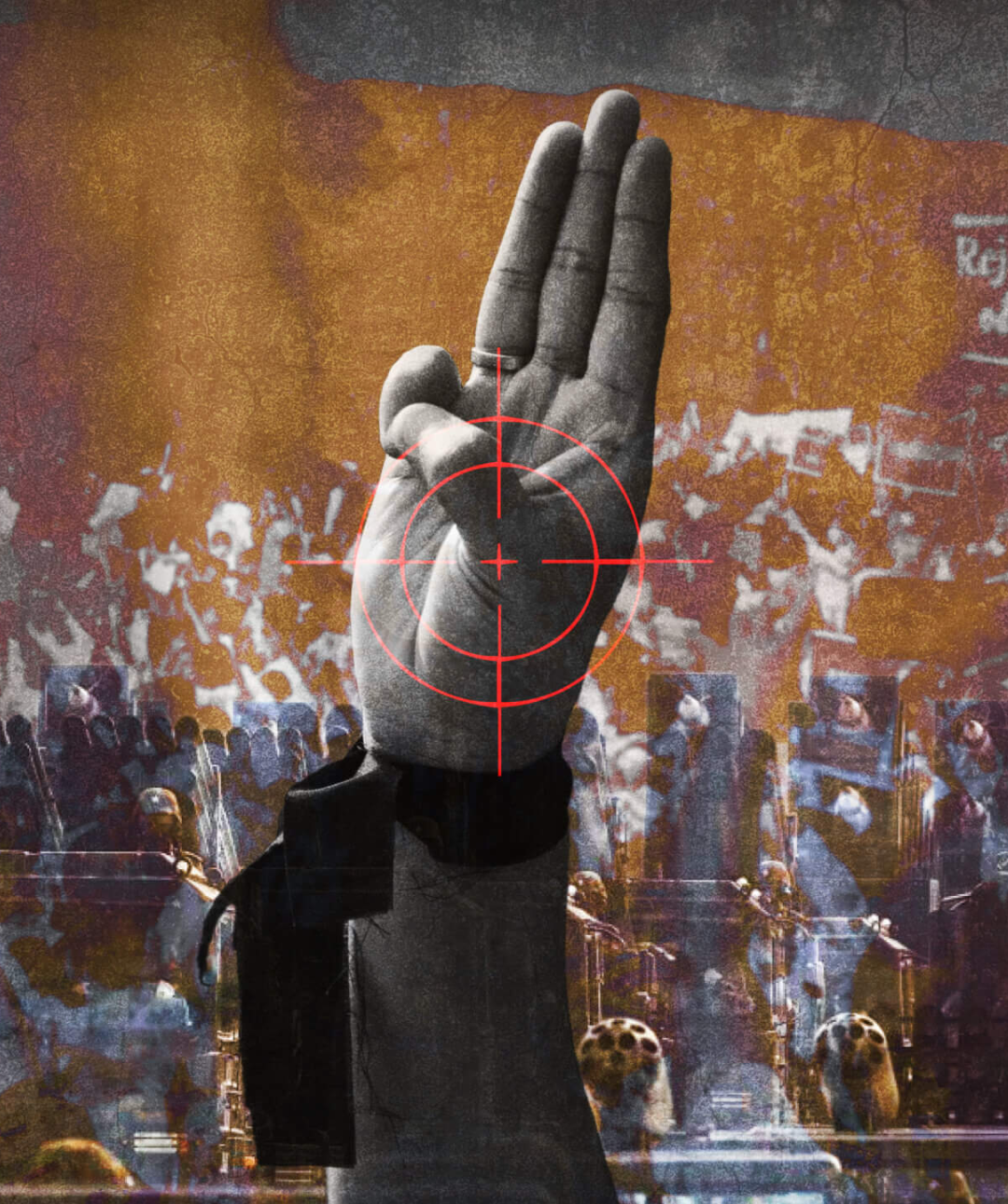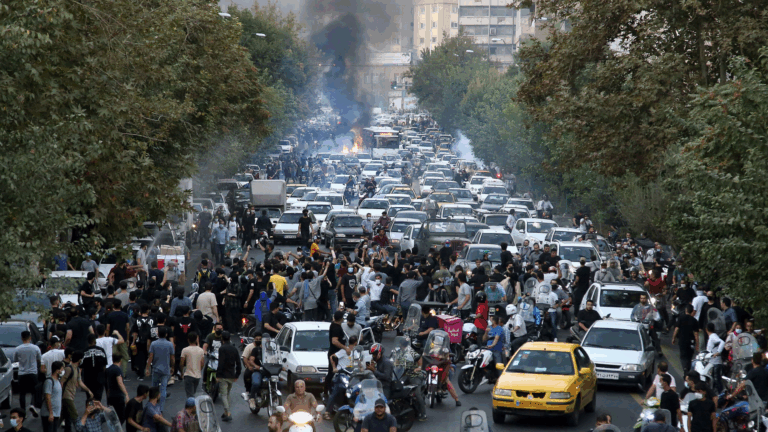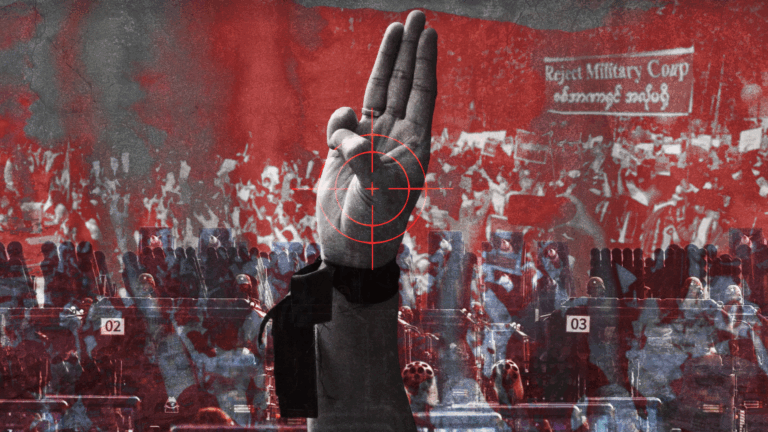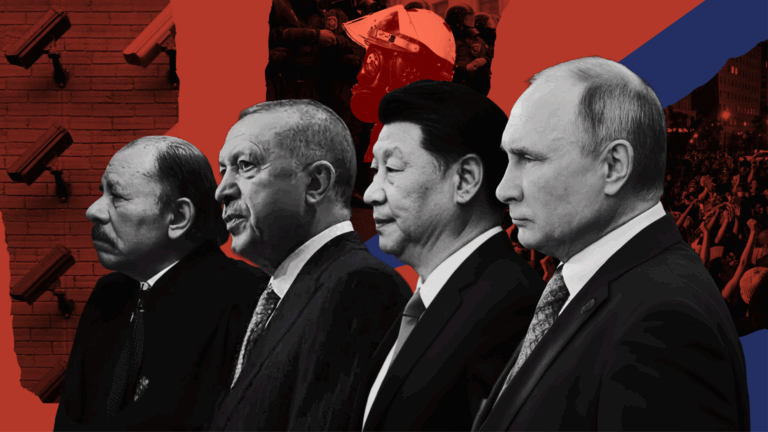The junta’s brutal repression of civilians forced thousands to flee the country and internally displaced at least 1.95 million people, leaving more than 18 million, or about one-third of the population, in need of humanitarian assistance. Despite the imminent need for assistance, the junta intentionally blocked aid from reaching those at risk as a form of collective punishment.
Across the country, the Burmese military increasingly used airstrikes, artillery shells, and other deadly weapons to crack down on civilians. To date, the military has destroyed at least 70,000 homes. In addition, schools, hospitals, and places of worship have also been attacked. One of the deadliest massacres was in the Sagaing region, when the air forces killed more than 160 civilians.
As Burma embarks on its third year of military rule, the regime has escalated the repression of the thousands of protesters and activists detained in connection with anti-coup or resistance activities on trumped-up charges, including terrorism and incitement. Many have been convicted in unfair trials, sentenced to lengthy prison terms, or given the death penalty. The UN Human Rights chief, Volker Türk, reported that more than 130 people were sentenced to death.
Burmese forces have also escalated violence against political prisoners, regularly employing various forms of abuse and harassment. According to an investigation by the Assistance Association for Political Prisoners, political prisoners were brought to be questioned at police stations or military interrogation centers after being arrested. Many described the military interrogation centers as “a living hell.” At the centers where torture is guaranteed, released political prisoners reported being beaten with batons or metal sticks and constantly threatened to be killed. Afterward, some were forced to sign a document stating they were not tortured. Since the coup, nearly 100 political prisoners have been murdered during interrogation. Burmese security forces also denied political prisoners adequate medical care. According to a recent report by the Myanmar Political Prisoners Network, about 34 political prisoners died in the junta’s prisons across the country in 2023, with 18 reportedly killed in prisons and 16 dying due to a lack of access to proper medical care.
Additionally, the Burmese military junta has reportedly used rape and other violence against women as a part of its campaign to repress opposition groups. Women political prisoners were often targeted and subjected to gender-based violence. Under the pretext of a “security check,” women political prisoners were forced to take off their clothes and undergo a manual body cavity search. Some reported that prison guards touched their sexual organs and made sexual comments during the search. Other forms of torture and ill-treatment against women political prisoners included banning them from taking showers, forcing them to use water from the toilets to wash, and giving them little food.
Last year, the Burmese security forces were even accused of killing political prisoners. In June, the military allegedly removed political prisoners from Kyaiksakaw Prison in the Bago region under the pretense of transferring them. Thirty-seven, however, have since gone missing, but the prison officials denied knowing their whereabouts. Families of the two “missing” prisoners have since received letters, notifying them that the prisoners were killed by security forces after they allegedly attempted to escape.
Under three years of military rule, the Burmese people continuously suffer from the frequent stifling of freedoms, indiscriminate military violence, and the effects of the widespread deadly crackdown on political prisoners. Thousands were forced to flee their homes, while millions remain in need of humanitarian aid.
As the third anniversary of the coup in Burma comes upon us, the world must continue to pay attention to the deterioration of human rights and stand with the people of Burma in their struggle for democracy.


